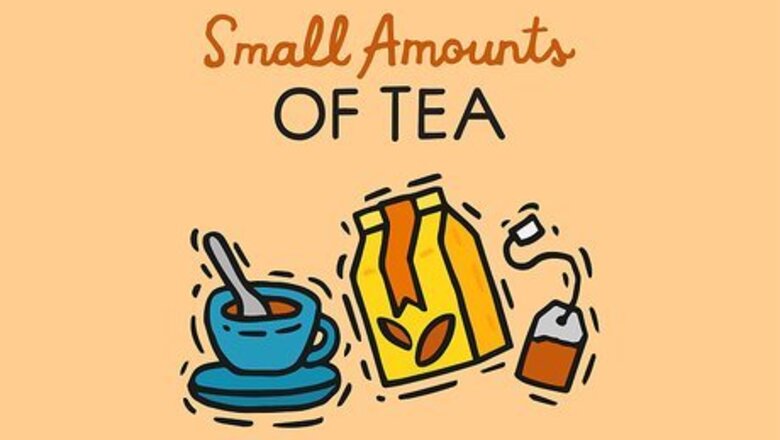
views
X
Research source
If you just want to bring in some tea to brew for yourself, importing it is as simple as ordering it through the mail. However, if you'll be buying larger quantities, you'll need to work closely with the US Food and Drug Administration (FDA) and Customs and Border Protection (CBP) to ensure your imported tea is handled legally.
How do I import small amounts of tea from China?
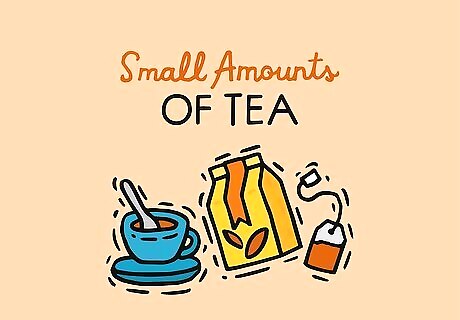
Have the tea mailed to you if it's less than $200 USD. If you're ordering less than $200 USD worth of tea, you can have it sent to you through the postal service or through EMS, or Express Mail Service. EMS shipping costs a little more but your tea will arrive faster, or you could choose the regular postal service to save money if you don't mind waiting. In either case, the shipping service will handle getting your tea through Customs.
How do I import bulk tea from China?
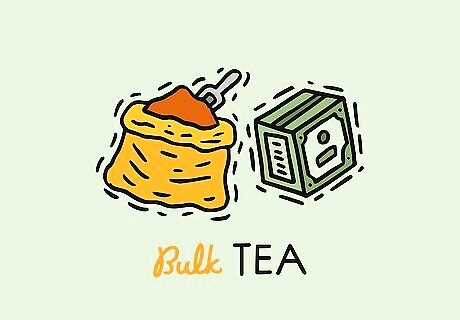
Create a business, then work with the FDA and Customs. If you want to import large amounts of tea, you'll need to have a business that's registered with the FDA—check with an accountant or tax attorney to see what type of business you'll need, since that depends on the laws in your state. Then, choose a Chinese tea supplier. When you order your tea, notify the FDA of the impending shipment. It's also a good idea to use a Customs broker to ensure your tea clears Customs smoothly. Once the tea arrives, arrange to have it quality tested by the FDA and label it so it meets all of the FDA guidelines for foreign goods before you resell it.
Is there a limit to how much tea I can import?
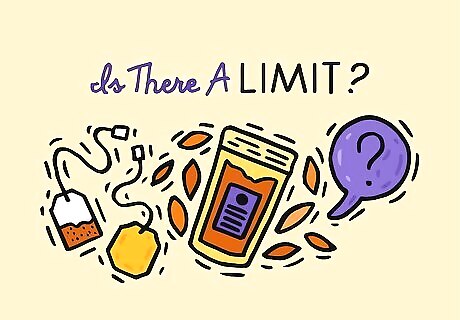
No, as long as it's bagged or loose-leaf tea. You can import as much tea as you like into the US—there are no quotas on tea, as long as it's not blended with any ingredients. However, there are quotas on products that might contain tea, like soups or sauces, so if you're importing products that have tea as an ingredient, that probably won't apply. If you're not sure, talk to an Import Specialist at the Customs entry port you're planning to use.
How do I find a Chinese tea supplier?
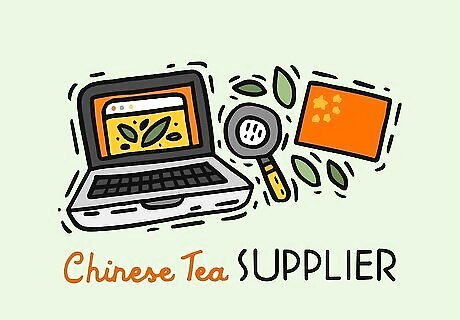
Check trade shows or ask other people in the industry. When you're looking for a supplier, it's important to find someone who's reputable and reliable. The best way to do that is to get a recommendation from someone you trust. You can also meet suppliers at trade shows. The biggest trade show in North America is the World Tea Expo, but you can also attend trade shows in China, like the Guangzhou Tea Expo or the Canton Fair. You can choose to find tea suppliers online if you'd like, but be very careful to make sure that the information you're getting is accurate. When you find a potential supplier, set up a trial order before you sign a contract. That way, you can get a feel for their procedures and you can check the quality of the tea yourself.
How do I register with the FDA as an importer?
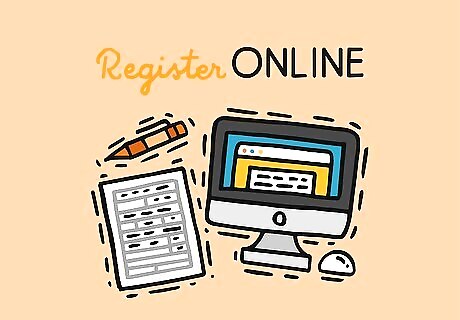
Register online through the FDA Industry System. Both you and the supplier must be registered with the FDA in order for you to legally import and process tea from China. There's a lengthy form to fill out—include information like the name of your facility, any trade names you operate under, the type of product you'll handle, the person who's in charge, and any emergency contact information. Make sure all of the information you include is correct—this registration is required under the Bioterrorism Act, so the FDA takes it very seriously. Find the form at: https://www.fda.gov/food/online-registration-food-facilities/food-facility-registration-user-guide-step-step-instructions
What is prior notice to the FDA?
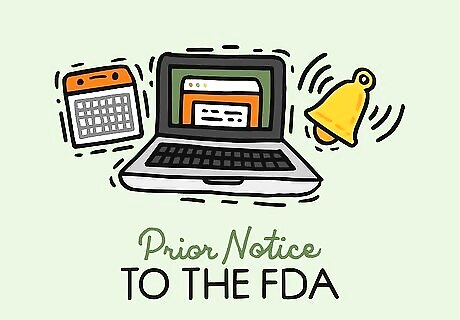
This means you have to notify the FDA before your tea shipment arrives. You have to let the FDA know before you bring any type of food—including tea—into the US. You can either do this through Customs and Border Protection (CBP) or through the FDA's electronic notification system PNSI (Prior Notice System Interface). Include information like where your shipment is coming from, when and where you expect it to arrive, how it's being shipped, and what the shipment includes. Make sure your prior notice is filed within 30 days of your shipment's arrival. If you use the electronic interface, it has to be completed at least 2 hours before your shipment arrives.
Is there a duty on tea imported from China?
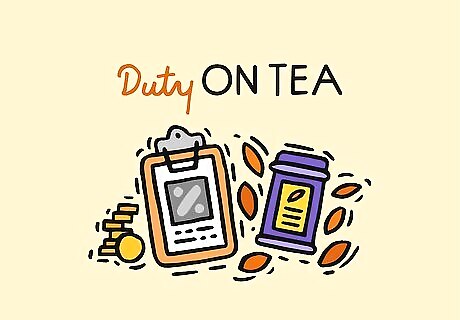
No, as long as it's pure tea. You don't have to pay a duty, have an import license, or pay VAT (value-added tax) to import tea from China. However, if the tea is used as an additive—like as an ingredient in a blended drink or a supplement—you may have to pay a duty on that.
Do I need to declare tea at US Customs?
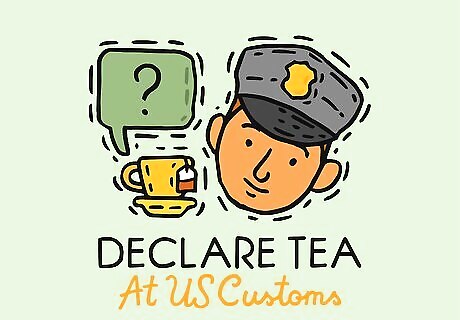
Yes, no matter the amount that you're importing. Tea is an agricultural product, so it has to be declared at Customs. If you're traveling to the US from China and you're bringing tea with you, you'll need to declare that at Customs when you arrive. If you're having it shipped, you'll need to file a Prior Notice with the FDA before the shipment arrives, and you'll also need to clear the shipment through Customs. Since Customs regulations can be pretty complicated, it's a good idea to use a Licensed Customs Broker, or an expert who'll handle all of your Customs paperwork for you. Your supplier will give you the paperwork you need for Customs, such as your packing list and invoice. You can also choose a "DDP" ("Delivery Duty Paid") arrangement with your supplier. This means they'll handle all of your shipping, including dealing with Customs on your behalf.
What are the HTS codes for tea?
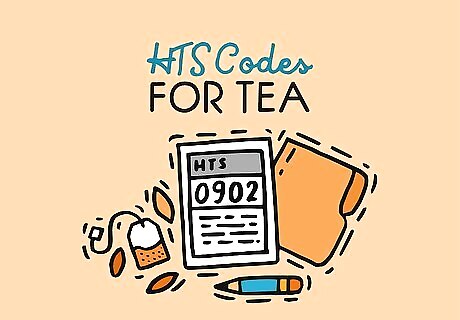
The general code for tea is 0902. Customs uses the Harmonized Tariff Schedule (HTS) to classify any goods that are imported or exported from the United States. The code for black tea is 0902.30, green tea is 0902.10, flavored green tea is 0902.20, and fermented teas are 090240. You'll need this code to fill out your Customs paperwork—although if you're using a Customs broker, they'll handle this for you.
What is third-party certification and how do I get it?
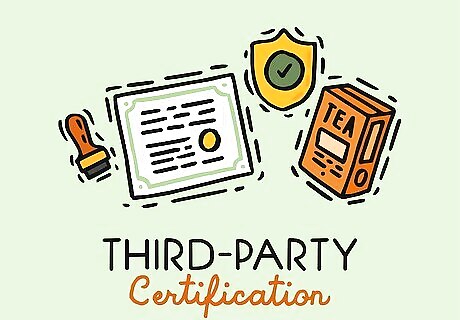
This means your tea must be tested for food safety. The Food Safety Modernization Act (FSMA) requires that any imported food must be tested by a third-party lab. This is to make sure that anything you bring into the country meets all of the United States' food safety standards. The two biggest third-party labs are SGS and Eurofins.















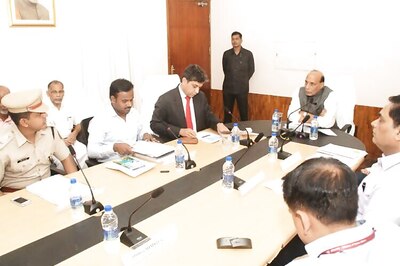

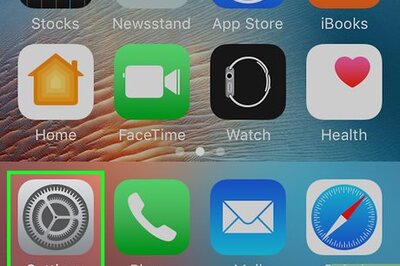
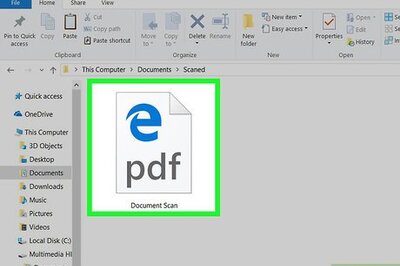
Comments
0 comment